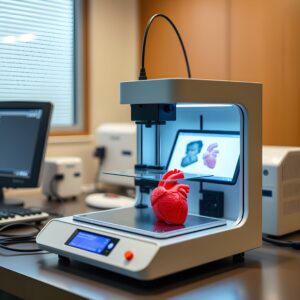“How 3D-Printed Ceramics Are Paving the Way for Quantum Tech Breakthroughs”

3D printing has revolutionized numerous industries, and ceramics are no exception. As quantum technology advances, scientists are finding innovative ways to integrate 3D-printed ceramics into the development of quantum computing and other quantum-based systems. These breakthroughs are bringing us one step closer to making quantum tech a reality for everyday applications.
The Role of 3D-Printed Ceramics in Quantum Technology:
Quantum technology requires materials that can operate under extreme conditions. Ceramics, known for their durability and ability to withstand high temperatures, are perfect for this. 3D printing allows for the customization of ceramic components, making it possible to create intricate structures that are essential for quantum computers and sensors.
Benefits of 3D-Printed Ceramics for Quantum Tech:
- Precision: 3D printing enables the creation of ceramic components with precise geometries, which is crucial for quantum systems that rely on accuracy at the atomic level.
- Heat Resistance: Quantum systems often operate in extreme conditions, and 3D-printed ceramics can withstand the high temperatures and pressures involved in these processes.
- Customizability: Engineers can design ceramic parts with specific features that optimize their performance in quantum applications.
The Future of Quantum Technology and 3D Printing:
As 3D printing technology continues to evolve, we can expect further advancements in the field of quantum technology. 3D-printed ceramics will play a crucial role in the production of quantum devices, from computers to advanced sensors. This intersection of 3D printing and quantum tech is setting the stage for innovations that could transform industries such as healthcare, telecommunications, and computing.



